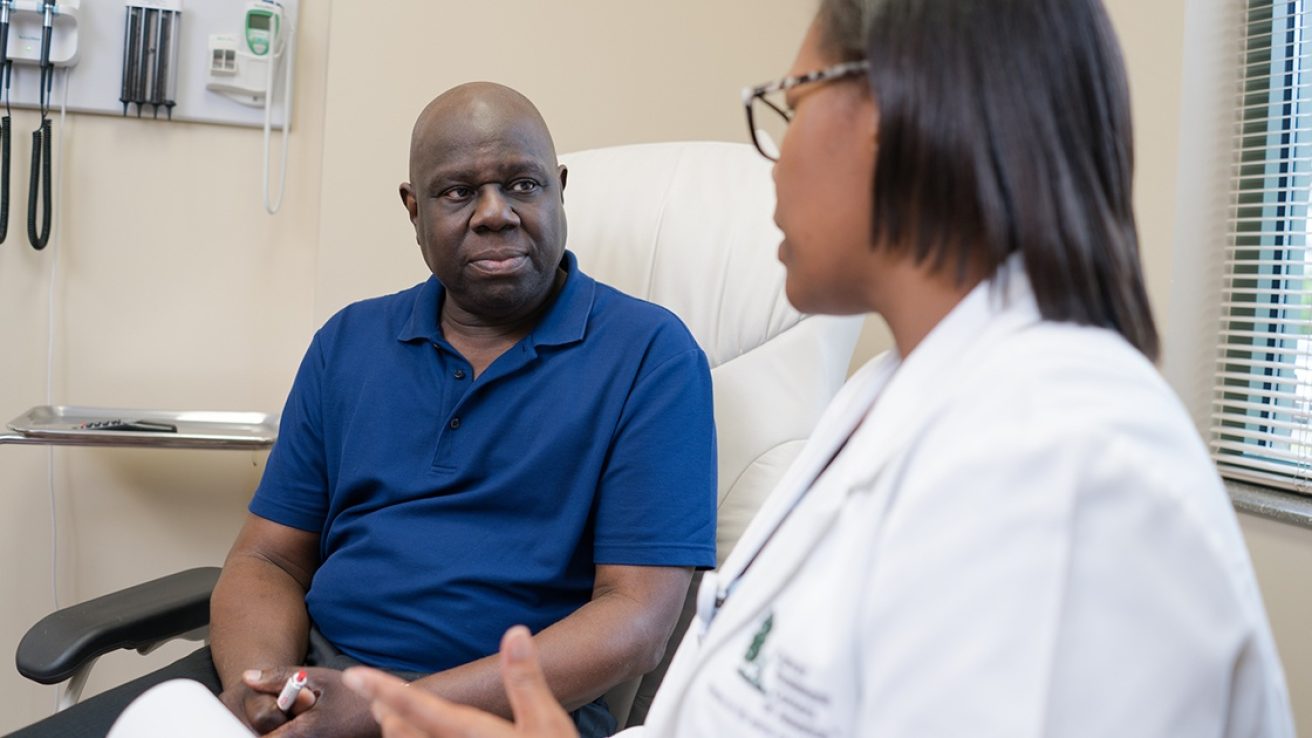Decreased Participation in Prostate Clinical Trials
African Americans have the highest incidence of prostate cancer, yet their participation in clinical trials related to prostate cancer is low. The inclusion of African American men in prostate cancer trials has decreased from 11.3% in 1995 to 2.8% in 2014. (1)
Lab Miscalculation
A study reviewed a list of prostate cancer clinical trials listed on clinicatrials.gov. The study found that the clinical trial eligibility criteria may disproportionally be excluding black men from participating due to racial variations in laboratory value. (2)
The study found that if serum creatinine and absolute renal function are used instead of the race-adjusted measurements; then African Americans may have a false estimate of renal function. This false estimate is improperly excluding them from the clinical trial. African Americans are known to have higher serum creatine as a baseline level. In addition, ethnic neutropenia can potentially exclude African Americans from clinical trial participation, despite the patient’s healthy immune system. The results showed that 47.9% of the 401 clinical trials reviewed, used criteria that disproportionally excluded black patients. (2)
Additional Barriers
Additional potential barriers included available childcare, inability to take time away from work, or lack of transportation. (1) Clinical trials typically require that patients travel to the location where the study is being conducted. This helps promote detailed medical care and excludes variables, but it is often costly and inconvenient for patients who live far away.
The study’s findings are eye-opening because eligible patients may be inappropriately excluded. In addition, it increases awareness that each patient should be thoroughly evaluated to determine if a clinical trial may be the best choice for him or her.
Improving the process
There is abundant room for process improvement in healthcare. In regards to prostate cancer, focused-groups and organizations are working to increase support for minority populations. One example is the International Registry for Men with Advanced Prostate Cancer (IRONMAN). (2)
A Multidisciplinary approach must be made toward improving the percentage of African American men that participate in prostate cancer clinical trials. Increased patient education, a closer evaluation of trial criteria (especially lab requirements), and improved patient support efforts are beneficial steps toward achieving this goal.
References:
- Study Exposes Severe Lack of Diversity in Prostate Cancer Clinical Trials. OncLive. https://www.onclive.com/view/study-exposes-severe-lack-of-diversity-in-prostate-cancer-clinical-trials. Published 2020. Accessed August 19, 2020.
- Vastola ME, Yang DD, Muralidhar V, et al. Laboratory Eligibility Criteria as Potential Barriers to Participation by Black Men in Prostate Cancer Clinical Trials. JAMA Oncology. 2018;4(3):413. doi:10.1001/jamaoncol.2017.4658
- Ahaghotu C, Tyler R, Sartor O. African American Participation in Oncology Clinical Trials—Focus on Prostate Cancer: Implications, Barriers, and Potential Solutions. Clinical Genitourinary Cancer. 2016;14(2):105-116. doi:10.1016/j.clgc.2015.12.003










